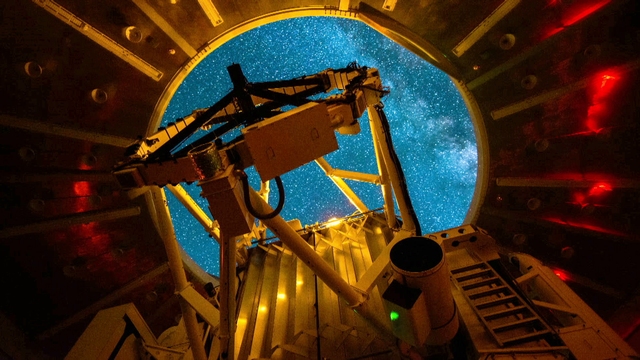Space Invaders
 A new space race is underway - driven by private enterprise, companies are competing to build extensive satellite networks. But what are the implications of this new era of privatised space exploration?
A new space race is underway - driven by private enterprise, companies are competing to build extensive satellite networks. But what are the implications of this new era of privatised space exploration?
"We're looking at quadrupling, quintupling the number of satellites in orbit over the next few years", Micah Walter-Range of the Space Foundation explains. Unlike in previous decades, these launches are largely undertaken by companies for commercial reasons. Planet is a US-based company exploiting new technology to launch waves of new satellites - and for much cheaper than was ever thought possible. "We have figured out how to miniaturise satellites", Planet founder Will Marshall explains. "Satellites that will typically have been the size of a bus ... we have taken that technology and tried to shrink it into tiny packages."
Weighing just 4 kilos, Planet's 'Dove' satellites gather image data on an unprecedented scale - photographing the whole Earth every day. But the increase of satellites provides practical and ethical problems. Concerns are being raised about the amount of space debris as well as the ramifications of heightened data collection. "I think we're just beginning to see the implications, not so much for the space industry, but for what everyone here on Earth is going to do with what's coming back from the space industry", Micah explains.
FULL SYNOPSIS

